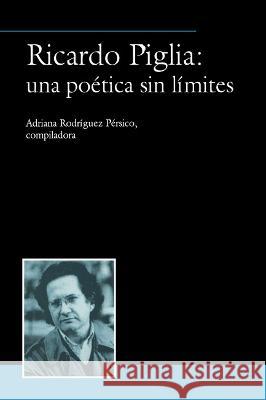Ricardo Piglia: una poetica sin limites » książka
Ricardo Piglia: una poetica sin limites
ISBN-13: 9781930744196 / Angielski
Hoy en dia los textos de Piglia integran programas academicos y figuran en las listas de best-sellers. Los articulos que componen esta obra, coinciden en la coherencia y fidelidad del proyecto literario de Piglia a la vez que rechaza imposiciones genericas, fusiona el pensamiento critico con la trama ficcional, desconoce jerarquias literarias y junta tradiciones muy diversas. Cada seccion de este libro se organiza de acuerdo con un eje que resume algun aspecto del universo conceptual e imaginario de Piglia. La primera seccion titulada Critica literaria y literatura critica, imagina la critica como una forma de autobiografia donde el narrador, el critico y el autobiografo son inseparables. La segunda seccion Narrar en/contra el genero agrupa varios autores que analizan el trato de Piglia hacia los codigos establecidos del genero. En la seccion Experiencia, historia y relato se destaca como la escritura de Piglia se confundia con la propia experiencia de vivir. Para Piglia escribir era una intensa pasion y como tal reflejaba la estructura de la vida misma. En Tradiciones y genealogias dispersas se investiga una poetica a traves de los libros que se encuentran en la biblioteca imaginaria de un autor, se desmenuzan las permanencias y cambios en la produccion textual de Piglia. La ultima seccion Lectura y relecturas aborda interpretaciones tanto propias como ajenas de su obra, habiendo estas ultimas oscilado a lo largo de los anos entre el elogio facil y el exabrupto critico. ~ Today Piglia's texts are part of academic programs and appear on best-seller lists. The articles that make up this work agree on the coherence and fidelity of Piglia's literary project while rejecting generic impositions, fusing critical thinking with the fictional plot, ignoring literary hierarchies and bringing together very diverse traditions. Each section of this book is organized according to an axis that summarizes some aspect of Piglia's conceptual and imaginary universe. The first section, titled Literary Criticism and Critical Literature, imagines criticism as a form of autobiography where the narrator, critic, and autobiographer are inseparable. The second section Narrating in/against the genre brings together various authors who analyze Piglia's treatment of the established codes of the genre. The section Experience, history and story, highlights how Piglia's writing merges with the experience of living. For Piglia writing was an intense passion and as such it reflected the structure of life itself. In Dispersed Traditions and Genealogies, Piglia's work is approached through the books found in an author's imaginary library, the permanent and changing elements in Piglia's textual production are broken down. The last section Reading and Re-readings deals both with his own and others' interpretations of his work, the latter having swung over the years between easy praise and critical outburst.











